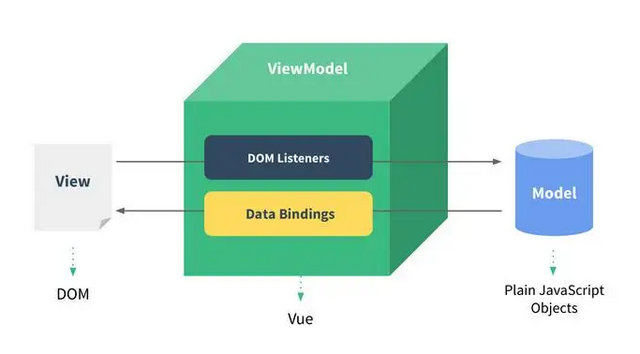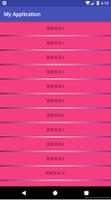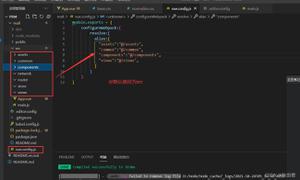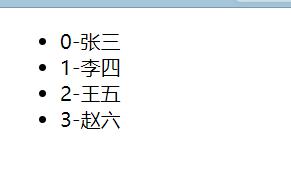vue指令实现拖动的高级写法

不熟悉vue自定义指令" title="vue自定义指令">vue自定义指令看这里: https://cn.vuejs.org/v2/guide/custom-directive.html
vue指令实现拖动方法很方便也挺简单,但是网上大部分的教程代码,一般都是把代码全部写一个方法里面,代码不够美观,代码逻辑也不太清晰,不推荐这种写法,比如下面这样:
Vue.directives: { drag: {
// 使用bind会有可能没有渲染完成
inserted: function(el, binding, vnode) {
const _el = el; //获取当前元素
const ref = vnode.context.$refs[binding.value]; // 判断基于移动的是哪一个盒子
const masterNode = ref ? ref : document; // 用于绑定事件
const masterBody = ref ? ref : document.body; // 用于获取高和宽
const mgl = _el.offsetLeft;
const mgt = _el.offsetTop;
const maxWidth = masterBody.clientWidth;
const maxHeight = masterBody.clientHeight;
const elWidth = _el.clientWidth;
const elHeight = _el.clientHeight;
let positionX = 0,
positionY = 0;
_el.onmousedown = e => {
//算出鼠标相对元素的位置,加上的值是margin的值
let disX = e.clientX - _el.offsetLeft + mgl;
let disY = e.clientY - _el.offsetTop + mgt;
masterNode.onmousemove = e => {
//用鼠标的位置减去鼠标相对元素的位置,得到元素的位置
let left = e.clientX - disX;
let top = e.clientY - disY;
// 绑定的值不能滑出基于盒子的范围
left < 0 && (left = 0);
left > (maxWidth - elWidth - mgl) && (left = maxWidth - elWidth - mgl);
top < 0 && (top = 0);
top > (maxHeight - elHeight - mgt) && (top = maxHeight - elHeight - mgt);
//绑定元素位置到positionX和positionY上面
positionX = top;
positionY = left;
//移动当前元素
_el.style.left = left + "px";
_el.style.top = top + "px";
};
// 这里是鼠标超出基于盒子范围之后再松开,会监听不到
document.onmouseup = e => {
masterNode.onmousemove = null;
document.onmouseup = null;
};
};
}
}
}
这里介绍一种比较方美观,逻辑清晰的写法,代码如下:
Vue.directive('drag', { bind (el, binding) {
el.style.cursor = 'move'
el.style.position = 'fixed'
el.mousedownPoint = {
x: 0,
y: 0
}
// bind 改变函数内部 this 指向,让 this 指向 el
// el.handleMouseup, el.handleMousemove, el.handleMousedown 这三个可以是其他的全局变量
el.handleMouseup = handleMouseup.bind(el)
el.handleMousemove = handleMousemove.bind(el)
el.handleMousedown = handleMousedown.bind(el)
el.addEventListener('mousedown', el.handleMousedown)
document.body.addEventListener('mouseup', el.handleMouseup)
document.body.addEventListener('mousemove', el.handleMousemove)
},
unbind (el) {
document.body.removeEventListener('mouseup', el.handleMouseup)
document.body.removeEventListener('mousemove', el.handleMousemove)
}
});
const handleMousedown = function (e) { // 这里的this被bind改变了,是el
// 这里的e是 MouseEvent 对象
const initialPosition = this.getBoundingClientRect()
this.style.width = initialPosition.width + 'px'
this.position = {
left: initialPosition.left,
top: initialPosition.top
}
this.readyToMove = true
this.mousedownPoint.x = e.screenX
this.mousedownPoint.y = e.screenY
}
const handleMousemove = function (e) {
if (!this.readyToMove) return false
const position = this.position
position.left = position.left + e.screenX - this.mousedownPoint.x
position.top = position.top + e.screenY - this.mousedownPoint.y
this.mousedownPoint.x = e.screenX
this.mousedownPoint.y = e.screenY
this.style.left = position.left + 'px'
this.style.transform = 'none'
this.style.marginLeft = 0
this.style.marginTop = 0
this.style.top = position.top + 'px'
this.style.bottom = 'auto'
this.style.right = 'auto'
}
const handleMouseup = function (e) {
this.readyToMove = false
}
这种写法主要利用了bind的特性,回一个新的函数,并且这个函数的 this 已经被改成我们想要的 this, 推荐这种写法。
以上是 vue指令实现拖动的高级写法 的全部内容, 来源链接: utcz.com/z/380775.html





